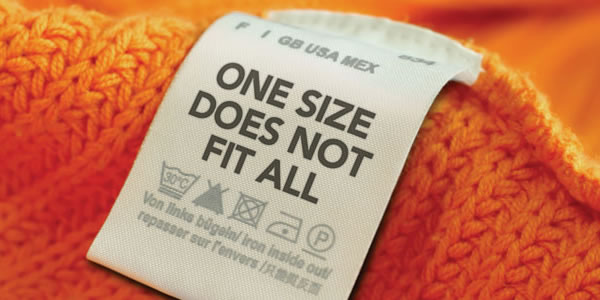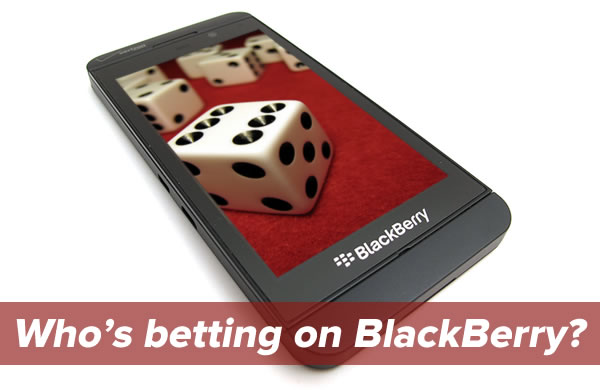Comic by Manu Cornet.
Click to see the source.
Pretty accurate, if you ask me.
Chart by Bruno Oliveira.
Click the graph to see it at full size.
File this under “It’s funny because it’s true.”
![]()
Perhaps you’ve heard of the recent deal in which Facebook acquired WhatsApp for $19 billion — that’s close to the estimated enterprise value of Sony — and are now asking the question “What’s WhatsApp?”. If you were imagining that it was some life- or paradigm-changing application, you may be surprised to find out that it’s an instant-messaging service that lets you send text, still pictures, video, and audio messages to your friends on a host of platforms. From a purely functional point of view, that’s all there is to it.
What sets WhatsApp apart, according to the Sequoia Capital blog, are four numbers:
No Ads! No Games! No Gimmicks!: WhatApp’s mantra, taped to founder Jan Koum’s desk.
Photo from Sequoia Capital’s blog. Click to see the source.
Strategy consultant Benedict Evans, who just started a new gig at A16z — that’s the in-the-know shorthand, URL , and Twitter handle for the venture capital firm Andreesen Horowitz — writes that if you look closely at the deal, it explains a lot about where mobile social apps are headed:
WhatsApp founder Jan Koum signing the acquisition deal on the door of the office where he used to collect welfare checks.
Picture via Forbes; click to see the source.
And finally, there are some lessons to be gleaned from the story of WhatsApp cofounder Jan Koum, although they could be summarized as “hustle and hard work”, combined with the right amount of luck. It’s covered quite well in this Forbes exclusive.

The thesis of the TechRepublic article Avoid using a one-size-fits-all BYOD security policy is that you shouldn’t use a single BYOD policy for everyone in your company. While a single policy is the simplest to implement, it fails in the way that a blunt tool used for every purpose does, and fails to balance the needs of information security with the people’s productivity needs.
In InformationWeek, Paul Waterhouse compares BYOD to Botox. He points out these similarities:
Like Botox, BYOD is powerful and can be poisionous, so it has to be applied judiciously.
BYOD itself doesn’t fit all corporate scenarios. If your line of work:
….then you may be in a situation where BYOD may not be a suitable option, and corporate-owned devices might be more appropriate.
 COPE — short for Corporate-Owned, Personally Enabled — is a term coined in 2012 by Philippe Winthrop of the Enterprise Mobility Forum. “COPE is the mirror opposite of BYOD,” said Winthrop in the TechTarget article BYOD alternatives emerge as tablets outship PCs. “It’s taking the benefits of the consumerization of IT … while retaining the flexibility for the employer.”
COPE — short for Corporate-Owned, Personally Enabled — is a term coined in 2012 by Philippe Winthrop of the Enterprise Mobility Forum. “COPE is the mirror opposite of BYOD,” said Winthrop in the TechTarget article BYOD alternatives emerge as tablets outship PCs. “It’s taking the benefits of the consumerization of IT … while retaining the flexibility for the employer.”
The COPE approach to mobile devices is modelled after the way many companies already provide laptops for their employees. COPE devices are provided by the employer, with the understanding that the device will be used not just for work, but also for personal use: web browsing, games, music, photos, video and so on. If the devices are seen as desirable, they’ll be considered perks. As company property, there’s usually less resistance to the installation of management tools and software.
Just as one approach to employee devices doesn’t fit all, one device isn’t likely to fit all needs. Microsoft’s Surface Pro tablet comes close to covering the bases of both tablets and computers, but the tiled-UI apps don’t feel as polished as their Android and iOS equivalents, and the Windows experience on Surface still feels unsatisfyingly netbook-like. For the next little while, it looks as though different use cases will call for different devices.
My friend Lee Dale’s company is moving office, and there’s some server and consumer gear that he doesn’t want to take with him and is willing to part with for incredibly low prices. If you’re in the Toronto area, you may want to get your paws on these! Among the items he’s selling are…
Must be picked up near 401 and Warden, to be coordinated on Friday, Feb 28th.
Click the photo to see all the items Lee has for sale.
Must be picked up, ideally we would coordinate pick up on Feb 28th.
Click the photo to see all the items Lee has for sale.
Free if you pick it up.
Click the photo to see all the items Lee has for sale.
Click the photo to see all the items Lee has for sale.

I can’t name any techies who are betting on BlackBerry, but I can point to a few investors on Seeking Alpha who are:
I shouldn’t have to remind you that the bets an investor makes and the bets that a mobile technologist makes are very different creatures. These Seeking Alpha analysts are in the business of getting as much bang out of their investment buck as possible, while readers of this blog are in the business of getting as much functionality out of their tech as possible. These rumbling from the investment community are worth noting because they give some hints as to what BlackBerry may do in the future, which the investors seem to hope is to give up hardware and concentrate on mobile device management and security, which are sure to be a big deal over the next few years.
Nor should I have to remind you that none of this should be construed as investment advice: you pays your money and you takes your chances, and nowhere did we didn’t tell you what to bet on.
Creative Commons photo by Matthew Hurst. Click to see the source.
And now, some links to interesting news and articles about mobile technology as applied to the enterprise…

CIO points to the latest report from Good Technology, the Good Technology Mobility Index Report Q4 2013, which says nearly three-quarters of all activations in the fourth quarter of 2013 among its customer base — more than 5,000 organizations in over 130 countries — were for iOS devices:
iOS accounted for 73% of all Q4 2013 activations of mobile devices using Good’s security platform, followed by Android at 26%, and Windows Phone for the remaining 1%.
When you look at just the tablet activations, Apple’s lead is even more stunning, accounting for 91.4% of tablets with Good’s security solution installed. Android accounts for the remaining 8.6%:

The recent exodus from the BlackBerry platform — one we recommend — has created an opportunity for its rivals to capitalize on. While Apple’s been doing a good job of winning over the enterprise, Samsung is also actively courting the enterprise by pushing features like its Knox security platform and chip-level security. Their efforts seem to be paying off, as the US Army has placed an order of 7,000 devices, and “several thousand” have been ordered by the NSA. Both were originally BlackBerry customers, who chose the platform for its security features; Samsung Knox-enabled devices received approval from the US Department of Defense last year.

